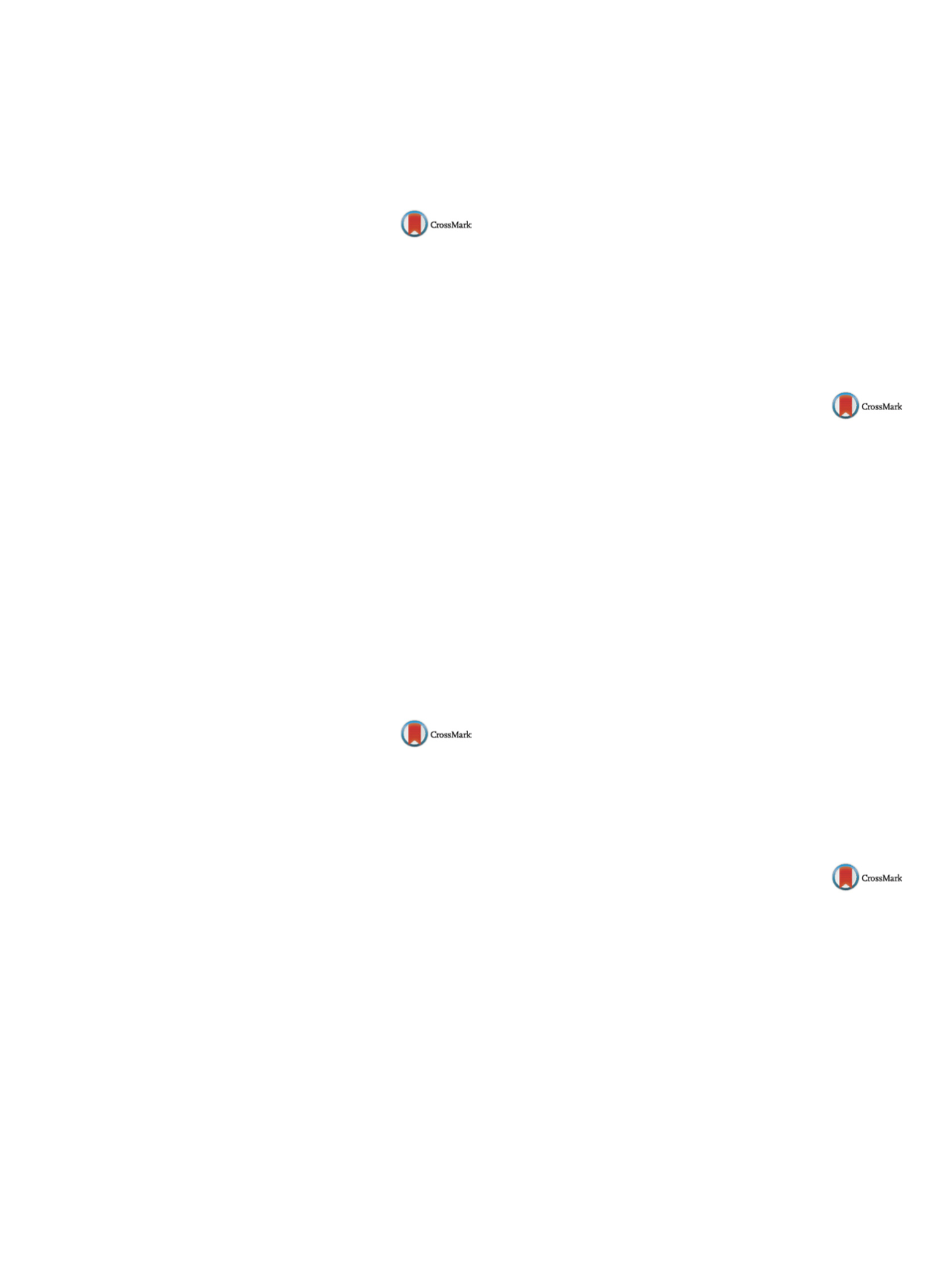

25th European Congress of Psychiatry / European Psychiatry 41S (2017) S710–S771
S717
ative emotions? Broadly speaking, what are 3 types of techniques
for transforming emotional habits?
Disclosure of interest
The author has not supplied his/her decla-
ration of competing interest.
http://dx.doi.org/10.1016/j.eurpsy.2017.01.1287EV0958
The time perception in contemporary
D.F. Burgese
1 ,∗
, D .P. Bassitt
2 , D.Ceron-Litvoc
2 ,G.B. Liberali
11
Instituto de Assistência Médica ao Servidor Público Estadual,
IAMSPE, SP, Psiquiatria, São Paulo, Brazil
2
Hospital das Clínicas, FCMUSP, USP, Psiquiatria, Sao Paulo, Brazil
∗
Corresponding author.
With the advent of new technologies, the man begins to experi-
ence a significant change in the perception of the other, time and
space. The acceleration of time promoted by new technology does
not allow the exercise of affection for the consolidation of ties, rela-
tions take narcissists hues seeking immediate gratification and the
other is understood as a continuation of the self, the pursuit of plea-
sure. It is the acceleration of time, again, which leadsman to present
the need for immediate, always looking for the new – not new – in
an attempt to fill an inner space that is emptied. The retention of
concepts and pre-stressing of temporality are liquefied, become
fleeting. We learn to live in the world and the relationship with
the other in a frivolous and superficial way. The psychic structure,
facing new phenomena experienced, loses temporalize capacity
and expand its spatiality, it becomes pathological. Post-modern
inability to retain the past, to analyze the information received and
reflect, is one of the responsible for the mental illness of today’s
society. From a temporality range of proper functioning, the rela-
tionship processes with you and your peers will have the necessary
support to become viable and healthy.
Disclosure of interest
The authors have not supplied their decla-
ration of competing interest.
http://dx.doi.org/10.1016/j.eurpsy.2017.01.1288EV0959
CBT waves through the lens of
Complex Systems Theory: A tentative
way toward integration and
sustainability
S. Cheli
University of Florence, School of Human Health Sciences, Florence,
Italy
Introduction
In the last 15 years, several new waves have been
described within CBT. At the same time, two constraints seem to
define the role of psychotherapy: an integrative theoretical trend;
an increasing incidence of chronic psychiatric disorders and psy-
chiatric morbidity in chronic conditions.
Objectives
We discuss the viability of a Complex Systems Theory
perspective in fostering the theoretical integration of the newwave
of CBT and in promoting the healthcare sustainability in facing with
chronicity.
Aims
The aims of the present study are to:
– frame a few recurrent and relevant theoretical dimensions in
psychotherapy;
– outline a preliminary cost-effectiveness analysis of a Complex
Systems Theory approach to psychiatric chronicity.
Methods
We performed a non-systematic review and a meta-
synthesis of selected references (identified through a citation
analysis per single reference and per single scholar) of the new
wave of CBT. We especially focused on theoretical handbooks,
meta-analyses and reviews, clinical trials.
Results
Complex Systems Theory describes an approach to
theoretical and operational models based on adaptability, interde-
pendency and self-organization. Indefining a few integrative trends
in psychotherapy, we highlighted the focus on:
– interpretation of events vs. events per se;
– processes vs. contents;
– transdiagnostic vs. pathologized models.
Furthermore, we framed economic, organizational, and educational
implications of such an approach in promoting the adaptability of
psychotherapy-as-a-system in dealing with the so-called double
crisis of welfare state: continuous cutbacks in response to reces-
sion; longer-term pressures on health and social care.
Conclusions
Despite further studies are needed, wemaintain that
psychiatry may benefit from a Complex Systems Theory perspec-
tive.
Disclosure of interest
The author has not supplied his/her decla-
ration of competing interest.
http://dx.doi.org/10.1016/j.eurpsy.2017.01.1289EV0960
The experience of time in habitual
teenage marijuana smokers
A. Dörr
Faculty of Medicine, Universidad de Chile, Psiquiatría y Salud Mental
Oriente, Santiago, Chile
The research is qualitative; it studies the experience of time in
young people who smoke marijuana in excess, given the high rate
of smoking in the teenage years, a delicate stage regarding the plan-
ning of the future. Our objective is to see how the relationship
between past and future plans is manifested in their biography,
through goals and actions, in light of their ability to anticipate
themselves. Our guiding principle is the ability to “anticipate one-
self”, proposed by Sutter, a phenomenological psychiatrist. The
information was obtained from the analysis of autobiographies
of young persons through the hermeneutical phenomenological
method developed by Lindseth, based on Ricoeur. The results reveal
that in the biographies the past temporal dimension is charac-
terized by poor descriptions, the present is where they extend
themselves most, describing tastes, how they visualize themselves,
but showing a lack of clarity in their interests. In the future, we see
the absence of reference, giving the impression of no progression
fromthe past, andwithout awareness of the fact that the future pos-
sibilities or lack thereof are heavily dependent on present actions.
Disclosure of interest
The author has not supplied his/her decla-
ration of competing interest.
http://dx.doi.org/10.1016/j.eurpsy.2017.01.1290EV0961
Psyche in historical context: Identity
and existence in Captain Ahab and
King Lear
G. Egloff
Heidelberg University, Psychoanalytic Practice, Mannheim, Germany
Introduction
What ties Ahab, the notorious captain of the Pequod
in Herman Melville’s 1851 novel, Moby-Dick, to King Lear, the
desperate old regent fromWilliam Shakespeare’s eponymous play
published in 1608, is not only their overabundant quest for mean-
ing, or their obsession with pursuing their targets, but their
idiosyncratic experiencing of themselves in their personal realities.
Aims
Captain Ahab is put in relation with King Lear, in order to
show in what way issues of identity and of existence emerge in the
course of their fictional lives. Lear is considered to have had deep
influence on Melville the author in creating the character of Ahab.
Since, in terms of present-day psychopathology, bothfictional char-
acters present with symptoms, their issues when put in historical
context can untangle their personal realities.


















